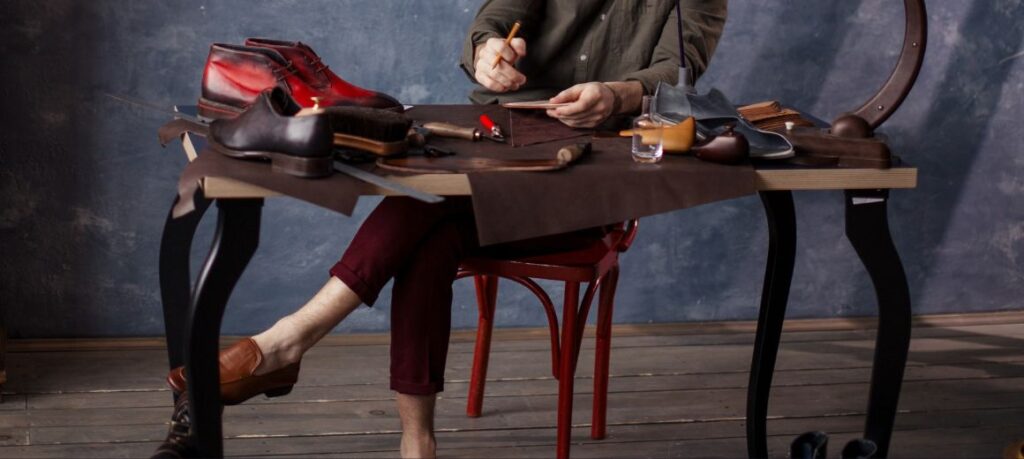In the ever-evolving world of fashion, the footwear industry is no exception to the rule that change is the only constant. In recent years, the concept of Original Equipment Manufacturing (OEM) and private label branding has gained significant prominence. This article delves into the benefits of OEM and private label branding in the shoe industry, explores why global brands are choosing this approach, and analyzes its role in creating a global market. We’ll also discuss the global market size, financial valuation, and the positive impact it’s making worldwide
Understanding OEM and Private Label Branding
Before we delve into the advantages, let’s clarify what OEM and private label branding mean in the context of the footwear industry:
- OEM (Original Equipment Manufacturing): This model involves a manufacturer producing footwear for another brand, which then sells the products under their own label. Essentially, the manufacturer acts as a silent partner, handling the production process while the brand takes care of marketing, branding, and distribution.
- Private Label Branding: In this model, a brand partners with a manufacturer to produce footwear exclusively under their brand name. The manufacturer, in this case, is responsible for manufacturing, quality control, and sometimes even design, while the brand retains control over marketing, branding, and retailing.
Benefits of OEM and Private Label Branding
- Cost Efficiency: One of the primary reasons global brands are turning to OEM and private label branding is cost efficiency. By outsourcing manufacturing processes, brands can reduce production costs, minimize overhead, and maintain better control over their budgets.
- Customization: OEM and private label partnerships offer brands the flexibility to customize designs, materials, and production methods to meet their specific needs and market demands.
- Speed to Market: The footwear industry is fast-paced, and responding quickly to trends is crucial. OEM and private label arrangements enable brands to bring new products to market faster, as they can rely on experienced manufacturers with streamlined processes.
- Quality Control: Manufacturers specializing in OEM and private label production often have stringent quality control measures in place. This ensures that the footwear meets the brand’s standards, leading to higher customer satisfaction.
- Focus on Branding: Brands can concentrate on what they do best – branding, marketing, and sales – while leaving the production complexities to experts in the field.

Why Global Brands are Choosing OEM
- Global Supply Chain Optimization: OEM allows global brands to optimize their supply chains by leveraging the expertise of manufacturers in different regions, reducing transportation costs and enhancing sustainability.
- Risk Mitigation: Diversifying the production base through OEM can mitigate risks associated with geopolitical instability or unforeseen events like natural disasters.
Creating a Global Market
OEM and private label branding have played a significant role in creating a global market for footwear. Brands can now reach a broader audience without the need for a physical presence in every region. This approach fosters cultural diversity, encouraging the exchange of fashion ideas and trends on a global scale.
Global Market Size and Financial Valuation
The global footwear market is vast and continually growing. While it’s challenging to provide real-time data due to the ever-changing nature of the industry, the market was valued at approximately $365 billion in 2020, with projections of steady growth in the coming years. The financial valuation of companies engaged in OEM and private label branding can be substantial, as their business models often result in healthy profit margins due to cost savings.
Global Positive Impact
Beyond financial gains, the rise of OEM and private label branding has positive global impacts:
- Job Creation: OEM arrangements create job opportunities in manufacturing hubs worldwide, boosting local economies.
- Sustainability: Footwear manufacturers are increasingly adopting sustainable practices, which are then passed on to OEM partners, contributing to more eco-friendly footwear production.
- Accessible Fashion: OEM and private label branding help make fashionable and quality footwear accessible to a wider audience, bridging fashion gaps across different regions.
OEM and private label branding in the shoe industry have transformed the way global brands operate. Their cost-efficiency, customization options, and speed to market have made them a preferred choice for companies looking to expand their reach and maintain a competitive edge. As the footwear industry continues to evolve, these business models will undoubtedly play a pivotal role in shaping the global market, offering financial opportunities, and making a positive impact worldwide.